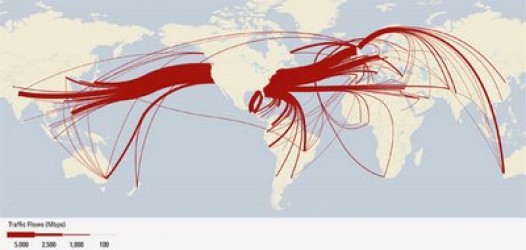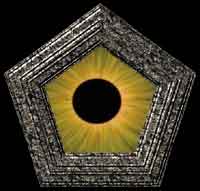Alex Constantine - November 2, 2009
" ... Bases of AUC (The United Self-Defense Forces of Colombia) are set up in Venezuela's oil-rich provinces in contact with the CIA. The paramilitary groups are destabilizing Venezuela by means of criminal activities, extortions, and kidnappings for ransom. Extremist groups recruiting Venezuelan middle-class youths are being created following a similar pattern. Las Verdades de Miguel weekly says they are trained by CIA instructors in Colombia. ... "
Nil Nikandrov
http://en.fondsk.ru
 US companies used to be the masters of Venezuelan oil reserves since the epoch of dictator Juan Gomez. He had a vague idea of the real worth of the natural riches of his «grand asienda» and sold «the devil's excrements» - the Indian name for oil - cheaply to the omnipresent Yankees. Throughout the XX century Washington regarded Venezuela's black gold as its own strategic reserve and invariably barred competitors from the sphere.
US companies used to be the masters of Venezuelan oil reserves since the epoch of dictator Juan Gomez. He had a vague idea of the real worth of the natural riches of his «grand asienda» and sold «the devil's excrements» - the Indian name for oil - cheaply to the omnipresent Yankees. Throughout the XX century Washington regarded Venezuela's black gold as its own strategic reserve and invariably barred competitors from the sphere.
During World War II many of the US combat vehicles ran on gas derived from Venezuelan oil. When German submarines launched raids in the Venezuelan territorial waters and near the Curacao Island where a major refinery was sited, Washington used the developments as a pretext for reinforcing the network of US military bases in the Caribbean and along the eastern coast of South America. The FBI – authorized by President Roosevelt to carry out such operations abroad - searched for Nazi spies and saboteurs jointly with the US Army intelligence. The search produced no results, but in the process the US gained access to all oil-rich regions of Venezuela, as war-time allies were not supposed to be secretive with each other.
US agents in Venezuela faced no risk of unemployment when the war was over. Now they were confronted with the Soviet threat. Washington started to receive alarmist messages from Caracas about the Venezuelan communists' Moscow-backed plans to sabotage the oil infrastructures of the country.
In 1946, when the spy mania was reaching its highest point, Soviet ambassador to Venezuela Foma Trebin visited Zulia, Venezuela's main oil-producing province. The tour was accompanied by various official activities, media events, and ceremonial dinners with local elites. Governor P. Hernandez organized a reception for the Soviet visitor at a yachting club, during which he praised the USSR for its decisive contribution to the victory in World War II and for the successful post-war reconstruction, and also spoke warmly about Stalin.
Almost certainly, Soviet diplomats could only catch a glimpse of the oil fields operated by the US-owned Creole and Mene Grande during the tour. Moreover, they had no idea of the actual proportions of the US oil and espionage paranoia in Venezuela. The FBI accounts of Trebin's tour translated into a US State Department secret memo linking it to the preparation for a sabotage campaign aimed at destabilizing the oil supplies to the US. Washington's agents picked up any myths or rumors that came along to confirm the hypothesis. A US informer sent a message to Washington saying that a number of acts of sabotage targeting Venezuelan oil industry would be perpetrated upon the completion of the Conference of American States in Bogota and suggested penetrating the Soviet Embassy to obtain the secret plan of sabotage in Venezuela. He described the situation as critical and claimed that the Soviet diplomatic mission parallely served as a depot of arms to be distributed among the saboteurs.
In 1952 the CIA - with the help of its agent, secret police chief Pedro Estrada – managed to make Venezuela sever diplomatic relations with the USSR. Estrada was awarded an American medal for his role. After this, Washington could enjoy at lest some peace of mind – Soviet agents had to leave Venezuela and the oil supplies from the country to the US became immune to the threat allegedly posed by the USSR.
The 1970ies saw new problems arise when Venezuela decided to nationalize its hydrocarbon resources, and this time the job awaiting the CIA agents was truly tough. Venezuela's state owned oil company - Petroleos de Venezuela S.A. (PDVSA) – was heavily infiltrated by well-paid US agents.
A scandal erupted in 1983 when four PDVSA executives were arrested in Caracas and six others fled to the US. The group of spies had access to classified information which it sold for money. The investigation launched by Venezuela established that the leaders of the group were in touch with the US Embassy, but the story was hushed up. J. Lusinchi who was inaugurated as President in February, 1984 wanted to avoid a conflict with the US. The investigation's findings were squeezed within narrow confines – the group simply used access to classified information for personal enrichment, and no grounds for espionage charges existed.
The neoliberal tide of the 1980ies also swept across Venezuela. In that epoch the country's political leadership and the PDVSA execs prepared the privatization of the company. The process evolved in phases. As recommended by the CIA, agents of influence convinced the public via media and during round tables that PDVSA was an inefficient company and a burden for the national budget.
In 1996 PDVSA hired the US-owned Science Applications International Corporation (SAIC) to upgrade its information services, thus opening to SAIC broad access to sensitive information. The US was able to track via its satellite communications system the PDVSA upcoming transactions, revenues, pricing policies, reserves, etc. Jose Sant Roz , author of CIA in Venezuela (2004), listed some of the SAIC administrators. Among them were former Defense Secretaries William Perry and Melvin Laird, former CIA Directors John Deutch and Robert Gates, former defense policy coordinator for the National Security Council General Jasper Welch, and former National Security Agency Director Ray Inman.
You wouldn't expect to find the above bunch of “technocrats” in the ranks of the supporters of the Bolivarian government which took over in Venezuela in 1999. Still, the contract with SAIC was terminated only in the late 2002 - early 2003, when PDVSA found out that its enterprises had been subverted by electronic signals conveyed from the US via satellite and Venezuelan officials went on a failed strike.
After the strike, practically all of the PDVSA executives plus over 10,000 of its staff were fired for illegally leaving their workplaces, and the company was headed by a new team. It managed to neutralize the subversion and restore the production processes. PDVSA got rid of the fifth column which pushed for its privatization in accord with the scenarios of the CIA and the US oil grands. Practically all of the “opposition oil executives” flocked to the Gente de Petroleo, a Caracas-based NGO patronized by the CIA as an instrument of destabilizing the current Venezuelan regime. The trials of some of former PDVSA employees caused panic in Gente de Petroleo and quite a few of its members fled to the US, Canada, the Saudi Arabia, and the Emirates.
Those of them who became consultants of US companies dealing with the Venezuelan oil seem to be the luckiest. For example, former number one Louis Justi got a job with Shell and also became an adviser to the Strategic and International Studies Center. Justi and his like are unleashed whenever the CIA floats another round of disinformation about the alleged failures of PDVSA.
The plans of President Chavez concerning oil remain a US intelligence-gathering priority. US agents in other countries, Colombia in particular, are actively involved in collecting the pertinent information. The territory of Colombia is used by the US for spying on Venezuela's oil-producing provinces, which Washington plans to occupy in the case of an armed conflict between Venezuela and Colombia. The main target of the planned US intervention to be launched from the military bases in Colombia is the Orinoco Belt holding at least 250 000 mln barrels of heavy crude.
A war – or provoking a war – between Venezuela and Colombia is a recurrent theme in the scenarios churned out by the CIA and the Pentagon. There is information that US special forces went on ultra-secret reconnaissance missions under the pretext of searching for FARC bases in Venezuela. In a number of cases the US special forces encountered Venezuelan border guard patrols and opened fire. Deaths of Venezuelan servicemen in such clashes were reported in Zulia, Tachira, Apure, and Amazonas – the regions of Venezuela bordering Colombia.
Bases of AUC (The United Self-Defense Forces of Colombia) are set up in Venezuela's oil-rich provinces in contact with the CIA. The paramilitary groups are destabilizing Venezuela by means of criminal activities, extortions, and kidnappings for ransom. Extremist groups recruiting Venezuelan middle-class youths are being created following a similar pattern. Las Verdades de Miguel weekly says they are trained by CIA instructors in Colombia. Political analysts project that the paramilitary groups will be used to provoke an armed conflict at the border between Venezuela and Colombia, which will serve as a pretext for a Colombian counterstrike and a US intervention, partially with the objective of safeguarding the Venezuelan oil fields.
President H. Chavez and his government stated a number of times that they have reliable information sources in the US Embassy and even the CIA. To an extent, this should guarantee the security of PDVSA. Over the past several months, Venezuela's secret police DISIP and military counterintelligence service have a number of times arrested members of the paramilitary groups and seized their depots of ammunition and lists of potential targets and victims including the current PDVSA executives.
Caracas is fully aware that it must remain alert. Geopolitically, the US has always viewed the oil-rich Venezuela as its own backyard, and B. Obama's Administration is no exception from the rule.
http://www.tiwy.com/news.phtml?id=150








